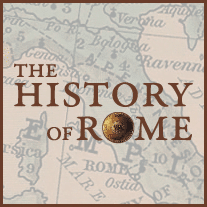
In this episode of the TED Radio Hour, Dr. Gül Dölen, a pioneer in psychedelics research at Johns Hopkins University School of Medicine, discusses her groundbreaking work on rethinking psychedelics and their potential applications in various disorders. She explores the concept of critical periods in the brain, the neurobiology of theory of mind, and the exciting possibilities of using psychedelics to reopen critical periods and promote healing. Join us as we dive into the fascinating world of psychedelics and their potential for revolutionizing mental health treatments.
Dr. Gül Dölen’s research at Johns Hopkins University School of Medicine has shown that psychedelics may serve as a master key for unlocking critical periods in the brain. These critical periods, which exist for various types of learning and regeneration, can be reopened with the use of psychedelics. This has potential therapeutic applications for disorders such as autism, stroke, and allergies. By pairing interventions that restore biochemical balance with psychedelics, critical periods can be reopened, allowing for natural learning and healing processes to occur.
Theory of mind, the ability to understand and anticipate what others might be thinking, is a neurobiological process that develops as we mature. People with autism may struggle with theory of mind, making it difficult for them to see the world from others’ perspectives. Interestingly, octopuses, despite not being social species, exhibit theory of mind-like behavior in hunting. This suggests that theory of mind may have originated from hunting behavior rather than social behavior. Understanding theory of mind impairment in diseases can provide insights into the relationship between consciousness and genes.
Autism, a complex condition that has expanded in definition over the years, can be thought of as an impairment in theory of mind. Psychedelics show promise in treating autism by restoring biochemical balance and reopening critical periods. By pairing psychedelics with interventions, such as therapy, that promote learning and regeneration, the effects of autism may be mitigated. Additionally, psychedelics could potentially aid in stroke recovery by reopening critical periods. Pairing other critical periods, such as physical therapy, with psychedelics may maximize the effectiveness of rehabilitation.
Psychedelics offer a major promise in revolutionizing mental health treatments. They have the ability to reopen critical periods, promoting healing and neuroplasticity. While different psychedelics may act on different receptors, they all have downstream effects on the regulation of the extracellular matrix. Pairing psychedelics with psychotherapy has shown to be more effective than using them alone, and the context in which they are administered is crucial for their effectiveness. The potential of psychedelics to cure health issues, similar to open-heart surgery, makes them an exciting area of research.
Dr. Gül Dölen’s research on psychedelics and critical periods offers a new perspective on the potential applications of these substances. By unlocking critical periods, psychedelics have the potential to promote healing and learning in various disorders, such as autism and stroke. The neurobiology of theory of mind and the origins of critical periods provide fascinating insights into the relationship between consciousness and genes. As research in this field continues, the promise of psychedelics in revolutionizing mental health treatments becomes increasingly evident. With the right context and integration with therapy, psychedelics could reshape our approach to healing and personal growth.